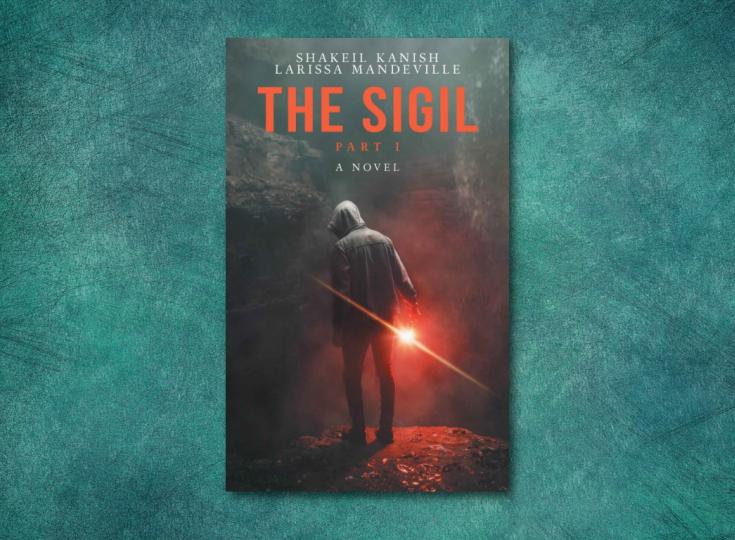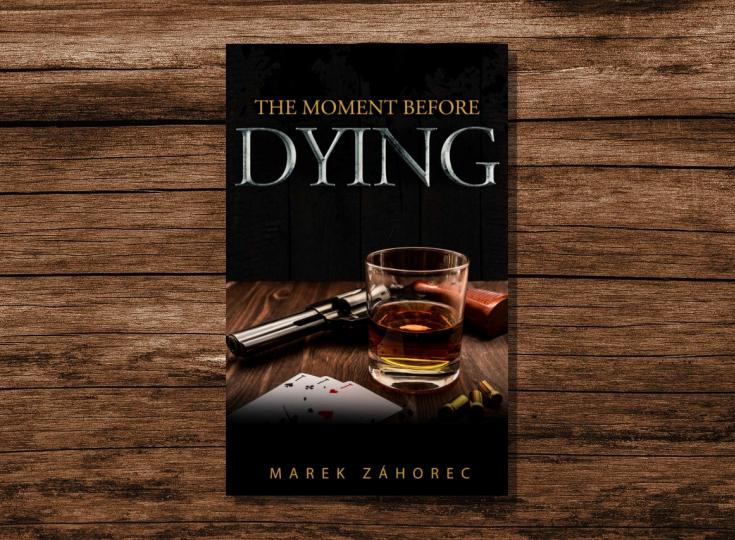Editorial Review: The Sigil by Shakeil Kanish and Larissa Mandeville

The Sigil, by Shakeil Kanish, Larissa Mandeville, and Payge White. is a queer, diverse take on the magical-school coming-of-age fantasy story.
Lake Smithson is lost when his older brother, Dev, is killed, and he really wants to live up to his older brother, Dev, even if that means kinda sorta impersonating Dev, doing unauthorized magic, and then some.
This is a magic school story, but slightly different from Hogwarts or Professor Xavier’s School for The Gifted. Our protagonist, Lake, is a non-magical student, well, he’s not even supposed to be a student. Instead of the typical arc, where our magical protagonist waits for his magical gifts and powers to appear, or the chosen-one narrative, here Lake knows he’s just a muggle in a magical school. Readers will absolutely believe this is a real school, with a teacher who wakes dozing students with magic, or a class working together to distract their teacher from the lesson. The cast of students all have realistic personalities and quirks. The friendships and characters found in the magic school really carry the whole novel. Lake and Nova were the strongest, but there were also some developed and memorable minor characters. Well-written banter develops the characters’ personalities and relationships.
At times, though, the book’s pacing is slightly uneven. The narration can be a bit repetitive, making some scenes drag. At other times, readers are dumped in a unique magical situation without sufficient setting to make it feel alive. Especially in action scenes, I found myself rereading and trying to place people. It’s not a deal-breaker, since the strong characters and solid relationships really carry the book, just a reminder that this a debut novel from new authors.
Also, Lake’s motivation first comes from his love of his brother Dev, but for most of the novel, readers are told, and not shown, the depth of their relationship. We don’t get to see them enjoying each other’s company or sharing a joke very much. Dev is killed off before readers have a chance to care about him or about his relationship with Lake. Again, this feels like a first novel, but it’s not a deal-breaker as further action and intrigue move the story along.
As a whole, the representation really works, creating a magical world that is a reflection of our own diverse world. Lake’s sexuality isn’t a deep, dark secret or even his main character trait. He’s a developed teenage character, and being gay is one part of it. His sexuality leads his well-meaning mom to awkwardly misuse queer terms, for family scenes that are realistic and cringy. Readers will absolutely believe this is a real family, too. And Nova is bisexual, without it becoming a defining character strait, just another aspect of her complicated, magical life. This is a solid representation, in a story that’s about magic, friendship, saving the world, and coming-of-age.
There were a few surprising moments that either felt like plotholes or setup for a sequel. Without revealing too much, there were a few moments when adults abruptly accepted what kids told them and a few surprising reversals. For example, Lake’s parents are oddly chill about him starting a new, never-before-mentioned school, in an undisclosed location. Is this a plot hole or were the Smithson parents in on the whole thing from the start? The same with the school’s headmistress, who makes a few abrupt reversals. The ending leaves readers with many questions, so perhaps this will all be explained in an upcoming sequel.
Overall, The Sigil offers an intriguing magical world with solid representation and fun characters, in a fantasy coming-of-age adventure.




